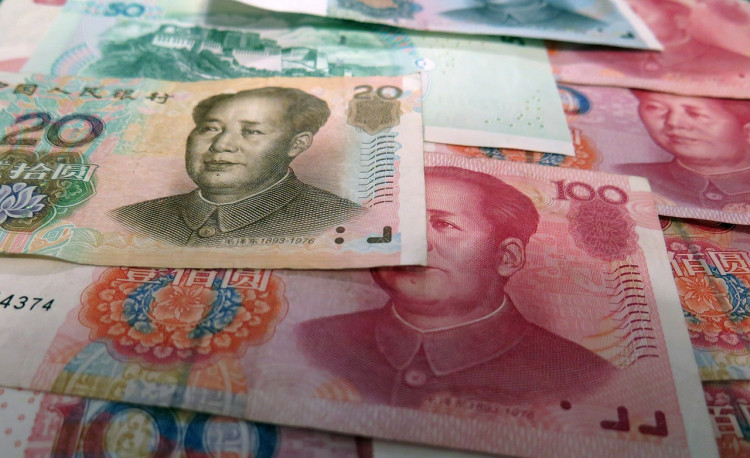Following Monday's disappointing figures that pushed the onshore renminbi (RMB) the drop yet in four months, the Chinese currency climbed 0.1 percent to settle at RMB6.8691 against the U.S. dollar on Tuesday.
According to the Financial Times, the offshore RMB gained slightly higher at RMB6.8915, accounting for a 0.3 percent hike. The outlet noted that this currency is allowed to trade at a more liberal standpoint, which could explain why the rebound was better than its onshore counterpart.
Some financial experts suggested that U.S. President Donald Trump's Monday comments about trade talks with China potentially being "very successful" helped ease market concerns at some point.
Meanwhile, Asian and American stocks dived on Tuesday following the Chinese government's tariff retaliation announcement in response to the White House's increase in tariffs on billions of Chinese goods by 25 percent.
A separate report by FT revealed that the Hang Seng China Enterprises Index shed around 2.4 percent on Tuesday. China's CSI 300 index that is home to many Shenzhen and Shanghai-listed stocks closed 0.2 percent lower than the previous session.
Following the release of China's new tariffs on U.S. products, the American liquefied natural gas (LNG) market saw a huge loss as Cheniere Energy stocks dropped by 3.3 percent on Monday.
Most economists and financial analysts are expecting volatile reactions by global markets following the intensified China-U.S. trade dispute. Global Market Strategist at JPMorgan Asset Management, Kerry Craig, said: "markets are likely to be more volatile, especially in the absence of any substantive information not written in a tweet."
Other analysts are expecting to see further effects on price inflation in the United States if the ongoing trade war doesn't come to an end soon. A no-deal scenario will most likely slow down growth in international markets, experts predicted.
China's retaliatory tariff increase will affect $60 billion of American goods. The tariff hike will take effect on June 1 and will affect various products such as tea and coffee, pork, beef, vegetables, and other commodities.
According to BBC News, Beijing has refused to submit to Trump's threats and pressure of hiking import duties. Chinese Foreign Ministry spokesman, Geng Shuang told the media that the government will "never surrender" to the White House's push.
Wall Street figures closed with massive losses on Tuesday after news of the trade war's tariff hikes were released to the public. Nasdaq saw losses of 3.4 percent while both the S&P 500 and the Dow Jones index dropped by 2.4 percent.
The next meeting regarding China-U.S. trade is expected to be headed by Chinese President Xi Jinping and Trump when they meet at the upcoming G20 summit in Tokyo next month.





